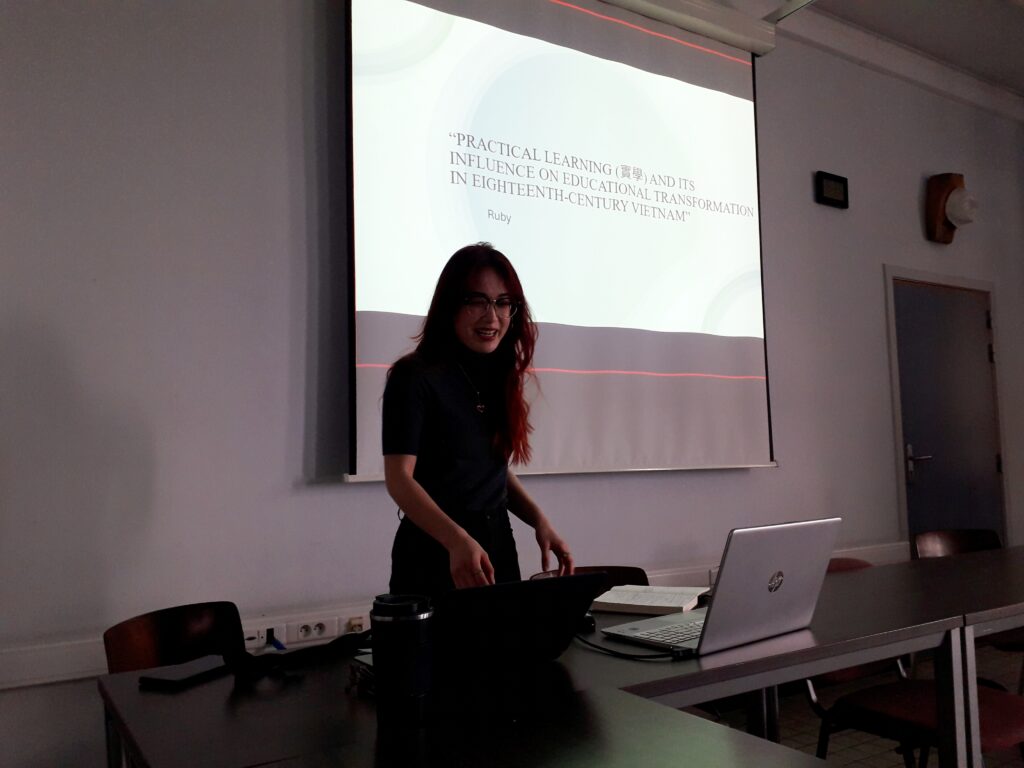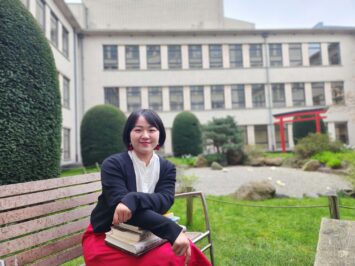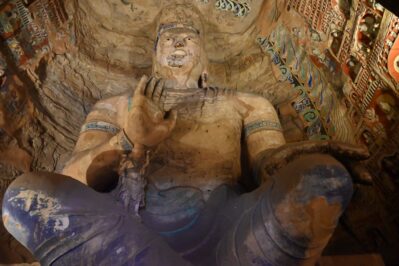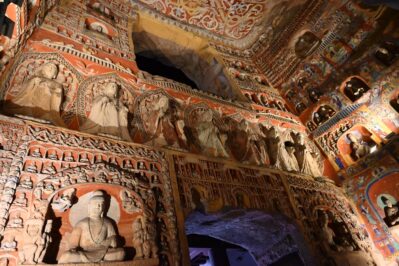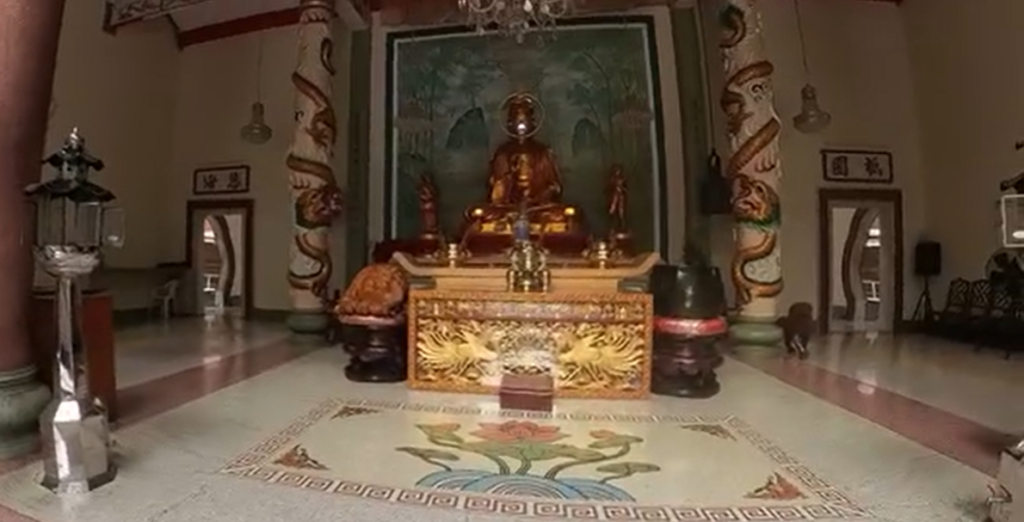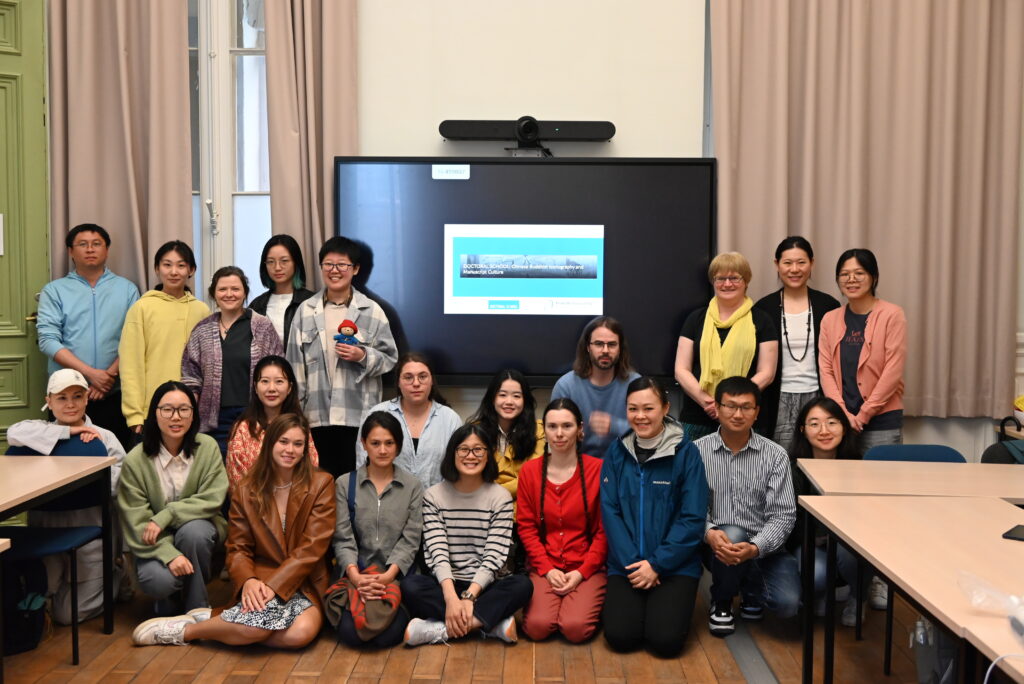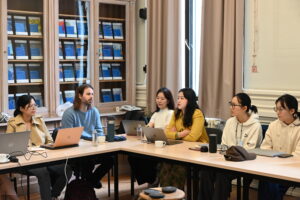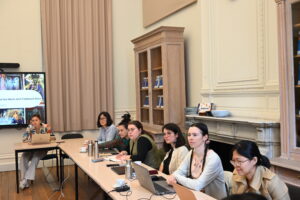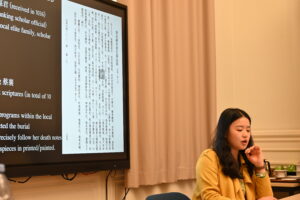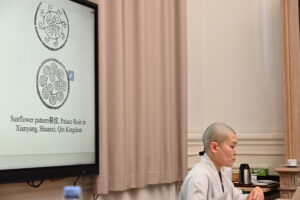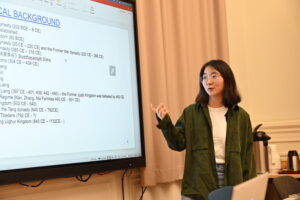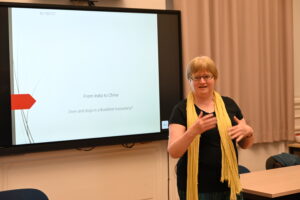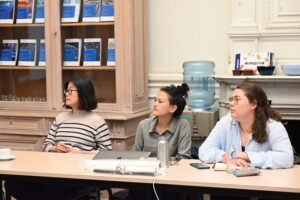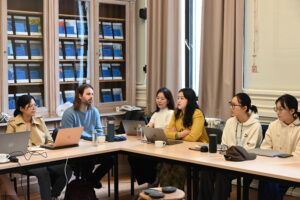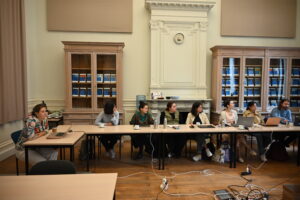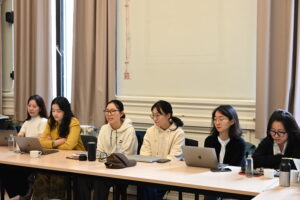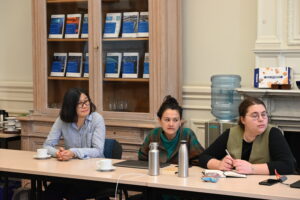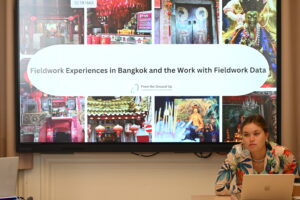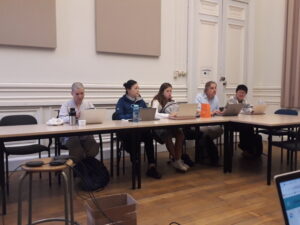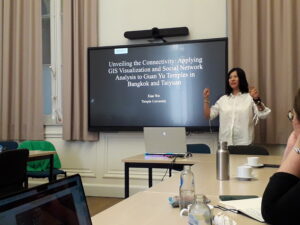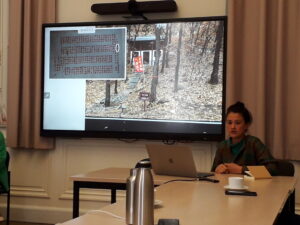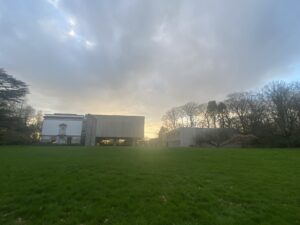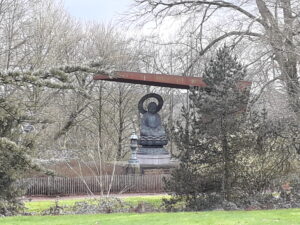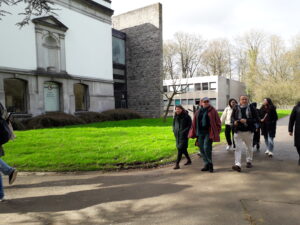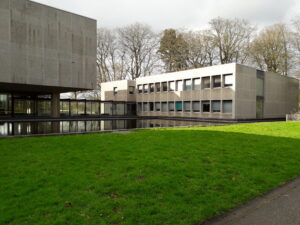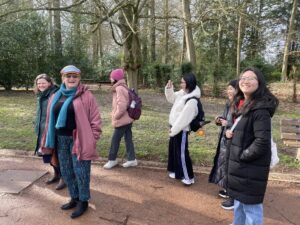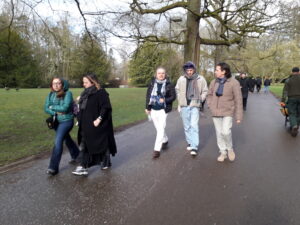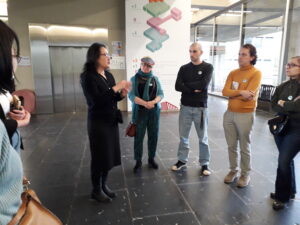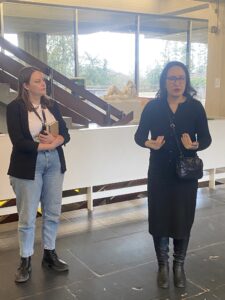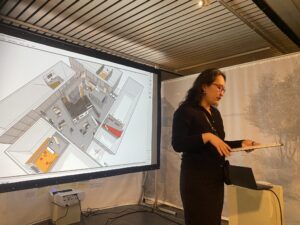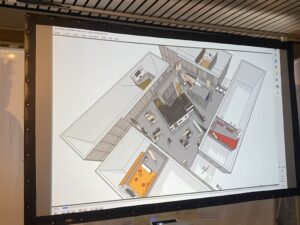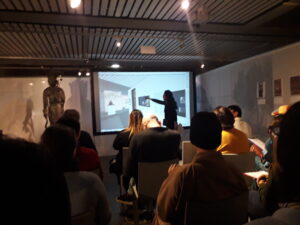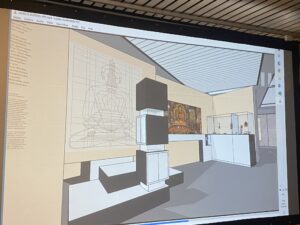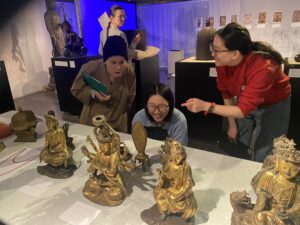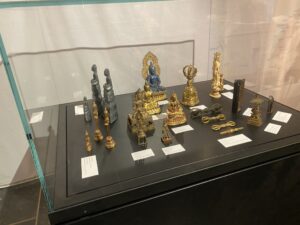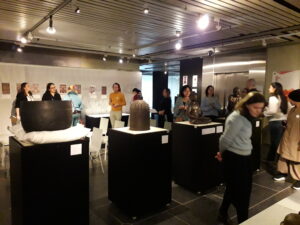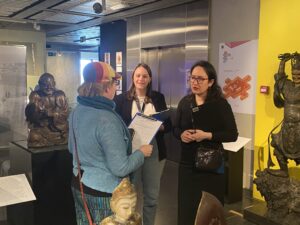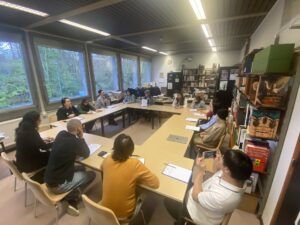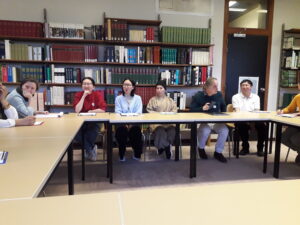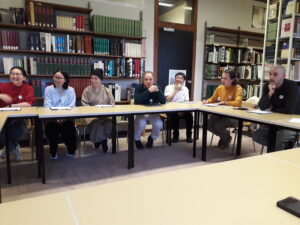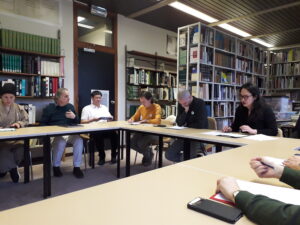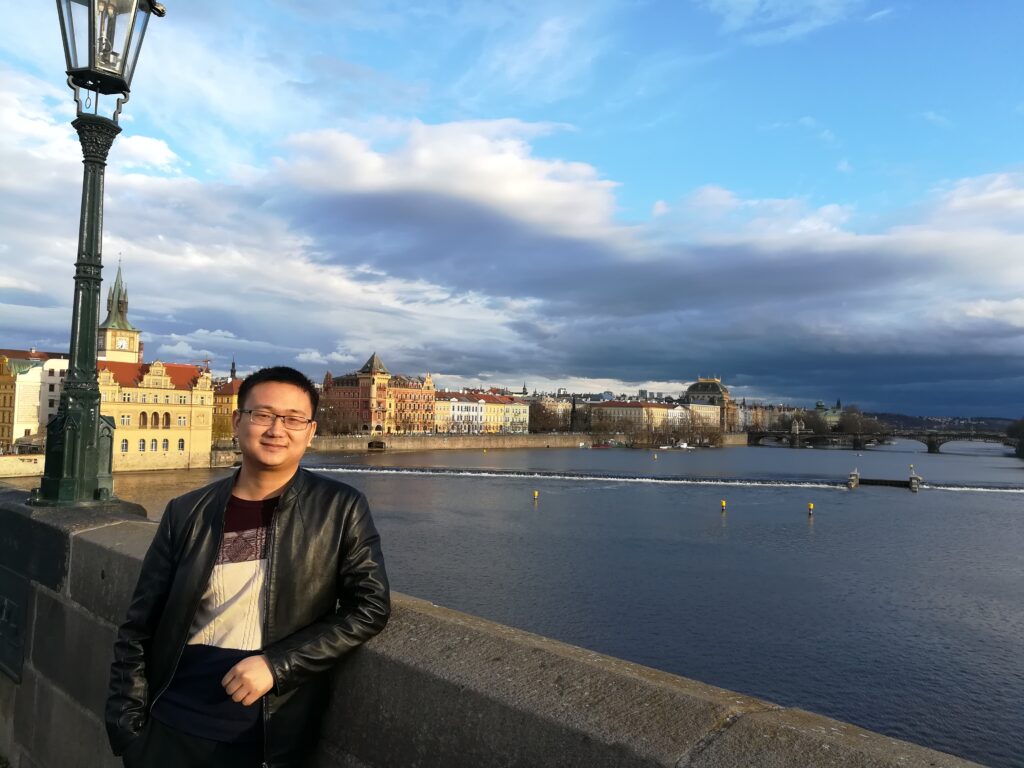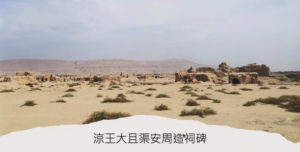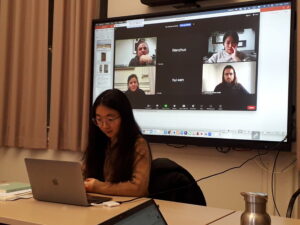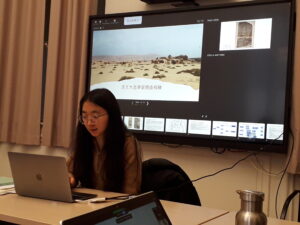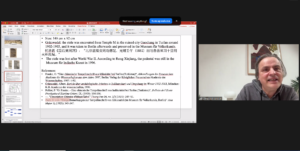Abstract: Field work activities and the study of manuscripts are vital aspects of conducting research in East Asian Buddhist Studies, and both the fields of analysing iconography and deciphering and contextualizing manuscripts have undergone rapid changes during the last decade, mainly driven by innovations in the field of Digital Humanities. This course aims to provide participants with first-hand insights concerning fieldwork activities conducted in the context of the long-term FROGBEAR project “From the Ground Up: Buddhism and East Asian Religions”, and to discuss how the collected data can be used in research and teaching environments.
Doctoral school: Call for applications
“Chinese Buddhist Iconography and Manuscript Culture: Fieldwork Data and their Use in Pedagogical Contexts, with an Emphasis on Digital Resources”
Venue: Simon Stevin room (Ghent University campus)
We are happy to announce an upcoming Doctoral School (DS), organized by Ghent University and co-sponsored by the FROGBEAR project “From the Ground Up: Buddhism and East Asian Religions”. The DS, lasting for five days (June 17-21, 2024), and the additional two days with public lectures (June 22-23, 2024), are related to the concluding events of the FROGBEAR project (which will end in September 2024), and previous fieldwork activities and collected fieldwork data will be the main topics discussed during these seven days.
Whereas the participation in the DS is restricted to local PhD and Postdoctoral researchers (in addition to five international PhD students), the subsequent two-day event is targeted at a general audience. The schedule and the programme of these two days will be announced at a later date.
Thanks to the generous support provided by the FROGBEAR (UBC) project, we are pleased to award up to five scholarships for international PhD students. This money can be used for travel, accommodation, and meals. To apply for this travel grant, please send a one-page cover letter and your CV to christoph.anderl@ugent.be by March 31st, 2024.
Two 800 Euro scholarships for long distance (outside Europe) attendance
Three 600 Euro scholarships for short distance (inside Europe) attendance
Organizers
Prof. Dr. Christoph Anderl
Prof. Dr. Ann Heirman
Ghent University, Faculty of Arts and Philosophy
Department of Languages and Cultures
Contact E-mail: Christoph.anderl@ugent.be
Course description
Title: Chinese Buddhist Iconography and Manuscript Culture: Fieldwork Data and their Use in Pedagogical Contexts, with an Emphasis on Digital Resources
Dates: June 17-21, 2024
Number of contact hours: ca. 25
Abstract:
Field work activities and the study of manuscripts are vital aspects of conducting research in East Asian Buddhist Studies, and both the fields of analysing iconography and deciphering and contextualizing manuscripts have undergone rapid changes during the last decade, mainly driven by innovations in the field of Digital Humanities. This course aims to provide participants with first-hand insights concerning fieldwork activities conducted in the context of the long-term FROGBEAR project “From the Ground Up: Buddhism and East Asian Religions”, and to discuss how the collected data can be used in research and teaching environments.
Objectives of the course (learning outcomes):
The objectives of the course are to offer an overview of new developments in fieldwork-based research, especially:
• the use of new technologies (e.g., 3D photography) and the preparation of data for large-scale publicly accessible databases;
• to train the students to adapt fieldwork techniques and approaches to specific locations and environments;
• to approach research goals based on multiple sources and resources, e.g., the combined study of iconography and manuscript materials, indispensable for research in many areas of China, especially in the north-western regions;
• to provide the participants with practical knowledge of how various digital tools and databases can be used in teaching and other pedagogical environments;
• to concretely discuss the above aspects in the context of ongoing PhD projects involving the study of iconography and manuscripts, with the aim of increasing the feasibility and effectivity of fieldwork, production, and use of data in these projects.
Relevance of the course to the PhD research conducted at Ghent University:
This course is highly relevant for PhD and postdoctoral projects conducted at the Department of Languages and Cultures. Several PhD projects directly deal with image and manuscript materials from the north-western region of China, in particular from Dunhuang and Turfan situated at the medieval Silk Road, in addition to other sites such as Sichuan Buddhist cave and cliff temples, and the monumental cave and cliff sites of Longmen and Yungang.
Teaching methods:
Lectures: 10 hours
Discussions and exercises: 5 hours
Source analysis / seminars / readings: 5 hours
PhD students’ presentations: 6+ hours
Evaluation criteria:
Attendance and output (active participation and presentations)
Lecturers:
Michelle C. Wang
Name and affiliation: Michelle C. Wang, Professor at the Department of Art and Art History, Georgetown University
Michelle C. Wang 王慧蘭 is a specialist in the Buddhist and Silk Road art of Northwestern China, primarily of the 6th-10th centuries. Her first book Mandalas in the Making: The Visual Culture of Esoteric Buddhism at Dunhuang (Brill, 2018) examines Buddhist mandalas of the 8th-10th centuries at the Mogao and Yulin Buddhist cave shrines in northwestern China. As the first scholarly monograph on Buddhist mandalas in China, this book considers the religious, cultural, and architectural contexts in which they appeared. In addition to her research on mandalas, she has also written about art and ritual, miracle tales of animated statues, the transcultural reception of Buddhist motifs, Buddhist materiality, and text and image. She co-organized the 2014-2015 Mellon Foundation-funded Sawyer Seminar “Critical Silk Road Studies” and co-directed the Luce Foundation-funded Georgetown-International Dunhuang Project for North American Silk Road Collections in 2016-2017, which continued in 2020-2022 with support from the Dunhuang Foundation. She is one of the founding board members of the Association for Chinese Art History and faculty PI for the open access resource Digital Index of Dunhuang Art. Her current book project, tentatively titled Desert Ruins, Colonial Exploration, and the Silk Road Imaginaire, examines the reception of medieval Silk Road sites in the photographs of explorer Marc Aurel Stein (1862-1943) and their intersections with colonial discourses of climate change, linguistics, and ethnography.
Wendy Yu Sau Ling
Name and affiliation: Wendy Yu Sau Ling, PhD, Research Assistant at the Centre of Buddhist Studies at the University of Hong Kong
Wendy Yu Sau Ling 余秀玲 received her PhD in Buddhist Art from the Centre of Buddhist Studies at the University of Hong Kong in 2024. Her research focuses on exploring the aesthetic aspects of Buddhism as expressed through its art. Wendy Yu is passionate about promoting the aesthetical aspect and beauty ideals found in Buddhist art through her research. Wendy is also an avid birdwatcher, bird artist and serves as an EXCO member of the Hong Kong Birdwatching Society. Her passion for birds extends to her research, where she specifically focuses on the bird imagery found in Buddhist art. One notable highlight of her academic journey is her thesis, which is an innovative, cross-disciplinary investigation of Pure Land birds integrating archaeological materials, textual evidence and ornithological knowledge. Birds preach the dharma in Amitabha’s Pure Land, and Dr. Yu acts as a bridge to share their fascinating narratives and make them accessible to a wider public. Currently, she works as a Research Assistant at the Centre of Buddhist Studies at the University of Hong Kong, where she is responsible for conducting research activities related to Buddhist art. Additionally, she volunteers as a docent at Tsz Shan Monastery Buddhist Art Museum and Hong Kong Palace Museum.
LIA WEI
Name and affiliation: Lia Wei (Associate Professor at Inalco, Paris)
Lia Wei is associate professor in Chinese art history at the Institut national des langues et civilisations orientales (Inalco). She has been conducting research in China since 2009, with a focus on medieval Buddhist epigraphy and cave temples in Northeast China (Shandong, Hebei, Henan provinces) as well as funerary landscapes in Southwest China (Sichuan, Chongqing, Guizhou, Yunnan, Hubei and Hunan provinces). She received her PhD with a thesis entitled ‘Highland Routes and Frontier Communities at the Fall of the Han Empire (2nd to 3rd century CE): A Comparative Study of Cave Burials South of the Yangzi River’ at the School of Oriental and African Studies (SOAS). In 2018-2021, she was based at the Department of Archaeology and Museum Studies in Renmin University of China. In parallel to her activity as an art historian/archaeologist, she practices seal carving and ink paintign, and designs projects that combine academic and artistic research (Ink Art Week in Venice 2018, Lithic Impressions Venice 2018, Ink Brussels 2019, Les cinq couleurs de l’encre 2022, Pratique de l’estampage 2023).
Christoph Anderl
Name and affiliation: Christoph Anderl, Professor at the Department of Languages and Cultures, Ghent University
Christoph Anderl specializes on medieval Chinese manuscript culture, Buddhist Chinese, and various topics related to the development and adaptation of Chinese Buddhism during the Tang and Five Dynasties periods. During the last years, his focus has been on the study of modes of representation of Buddhist narratives in textual and visual media, including methodological and theoretical issues concerning the interrelation of text and image. In this context, he has also acted as leader of the Research Cluster “Typologies of Text-Image Relations” in the large UBC-based interdisciplinary project “From the Ground Up: Buddhism and East Asian Religions”, with ca. 30 participating universities. In order to study text-image relations and modes of representations in specific contexts, he has organized several conferences/seminars, as well as conducted fieldwork in China and Bangkok, leading groups of participants from international universities. Anderl is also the editor-in-chief of a database of non-canonical Dunhuang texts and character variants found in Dunhuang texts and other materials of the medieval period, a long-term project conducted in collaboration with Asian and European universities. For current projects, see Professor Anderl’s profile at the research portal of the Ghent Centre for Buddhist Studies.
Ann Heirman
Name and affiliation: Ann Heirman, Professor at the Department of Languages and Cultures, Ghent University
Ann Heirman, Ph.D. (1998) in Oriental Languages and Cultures, is professor of Chinese Language and Culture, head of the Department of Languages and Cultures and head of the Centre for Buddhist Studies at Ghent University in Belgium. She has published extensively on Chinese Buddhist monasticism and the development of disciplinary rules, including Rules for Nuns according to the Dharmaguptakavinaya (Motilal Banarsidass, 2002), The Spread of Buddhism (Brill, edited volume with Stephan Peter Bumbacher, 2007), A Pure Mind in a Clean Body (with Mathieu Torck, Academia Press, 2012), and Buddhist Encounters and Identities Across East Asia (Brill, edited volume with Carmen Meinert and Christoph Anderl, 2018). Her current research focuses on material culture, and lived experiences in Buddhist monastic life. For a full bibliography, see https://biblio.ugent.be/person/801001019567.
Program
(updated May 8, 2024)
Monday 17th June: Introductory lectures / Buddhist iconography
10.00 Welcome (Anderl, Heirman)
10.15-12.00 Digital Index of Dunhuang Art and other digital resources for the study of Dunhuang art (Wang)
12.00-13.30 Lunch
13.30-15.00 Lecture: Mural and Portable Painting Iconography: Images of Avalokiteśvara (Wang)
15:00-15:30 Coffee break
15.30-16.30 Lecture: Mural and Portable Painting Iconography: Images of Mañjuśrī (Wang)
Tuesday 18th June: Methodological applications
10.00-12.00 Lecture (with case studies): Working on Dunhuang Transformation tableaux: An introduction (Yu)
12.00-13.30 Lunch
13.30-14.30 Lecture/seminar/discussion: Painting Materials and Workshop Practice at Dunhuang (Wang)
14:30-14:50 Coffee break
14:50-16:00 The Khotanese Presence at Dunhuang (Wang)
Wednesday 19th June: Presentations / digital resources
10.00-12.00 Students’ presentations (with discussions; moderator: Anderl)
12.00-13.30 Lunch
13.30-14.30 Lecture / seminar: An introduction to the DMCT
database: Functions and tools for working with manuscripts / epigraphy (Anderl)
14:30-14:50 Coffee break
14.50-16.00 Lecture / seminar: Sichuan Buddhist sites and the Frogbear Research Database (Yu / Anderl)
Thursday 20th June: Presentations / Pedagogical approaches /fieldwork
10.00-11.00 Presentation: Fieldwork experiences in Bangkok and the work with fieldwork data (Johansen)
11.00-12.00 Fieldwork methods and protocole for epigraphy in mountainous environments and rock-cut sites (Wei)
12.00-13.30 Lunch
13.30-16.00 Students’ presentations (with discussions; moderator: Anderl / Yu / Wei)
Friday 21st June: Material culture / epigraphy
10.00-12.00 Lecture / exercises: Material culture through normative texts: some case studies (Heirman)
12.00.13.30 Lunch
13.30-15.00 Structuring metadata and agreeing on a descriptive vocabulary in the study of epigraphy (Wei)
15:00-15:30 Coffee break
15.30-16.30 Closing discussion (moderator: Anderl / Heirman / Wang / Wei)
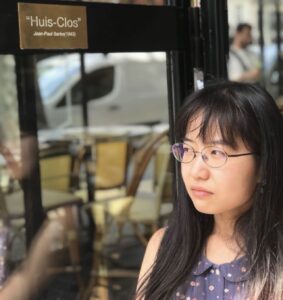 A guest lecture by Yixiu JIANG of Leiden University will take place on May 16 at 14:30 in Meeting Room Camelot (3.30), Campus Boekentoren, Blandij. The lecture is ogranized by GCBS’s Professor Charles DiSimone.
A guest lecture by Yixiu JIANG of Leiden University will take place on May 16 at 14:30 in Meeting Room Camelot (3.30), Campus Boekentoren, Blandij. The lecture is ogranized by GCBS’s Professor Charles DiSimone.